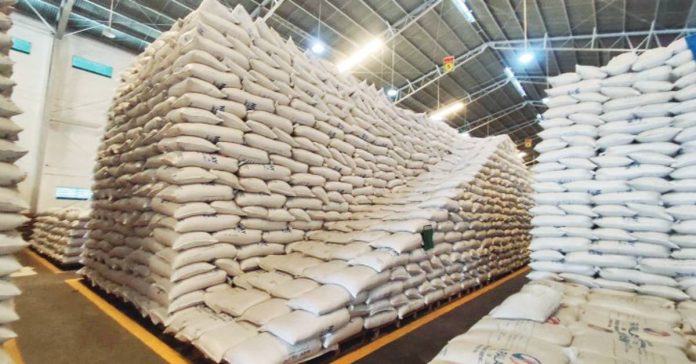
THE Department of Agriculture (DA) is proposing to require rice importers to share the responsibility of maintaining the country’s rice buffer stock through an amendment to the Rice Tariffication Law (RTL).
The DA, citing a recent Senate Committee on Agriculture hearing, said on Tuesday, August 26, that Agriculture Secretary Francisco Tiu Laurel Jr. has clarified that the Agriculture department’s push to restore the key regulatory powers of the National Food Authority (NFA) will not mean it will once again have the sole authority to import rice.
Rice importation will remain with the private sector, he said, but importers should be required to share the responsibility of maintaining the country’s buffer stock.
“They have to have skin in the game,” said Tiu Laurel, adding, “If we aim to have a 20-day rice buffer stock, we’re thinking of a 50-50 split between the NFA and the private sector.”
Under the proposed setup, rice imports will follow a “controlled model” similar to the sugar import program of the Sugar Regulatory Administration (SRA), where only qualified importers are given import allocations.
Moreover, rice importers will be obligated to procure palay from local farmers at “fair prices” for buffer stocking.
“With the private sector partly doing the buffer stocking, sourcing from local rice farmers, it will also reduce the cost of buffer stocking for the government,” said Tiu Laurel.
Currently, the NFA can only purchase about 5% of national palay output due to limited warehousing and drying capacity and is confined to stocking rice for emergency and disaster relief.
With this, Tiu Laurel raised the need for the DA to have regulatory power over rice imports to prevent oversupply, which has led to depressed farmgate prices.
“We must regain control… Rice is a commodity imbued with too much public interest to leave entirely to the private sector,” said the DA chief.
The DA’s attached corporations, Food Terminal, Inc., and Planters Products, Inc., will import on behalf of the government “if needed,” he said.
According to Tiu-Laurel, the “proposed changes aim to strike a balance between ensuring affordable rice for consumers and protecting the livelihoods of Filipino rice farmers.” (GMA Integrated News)







